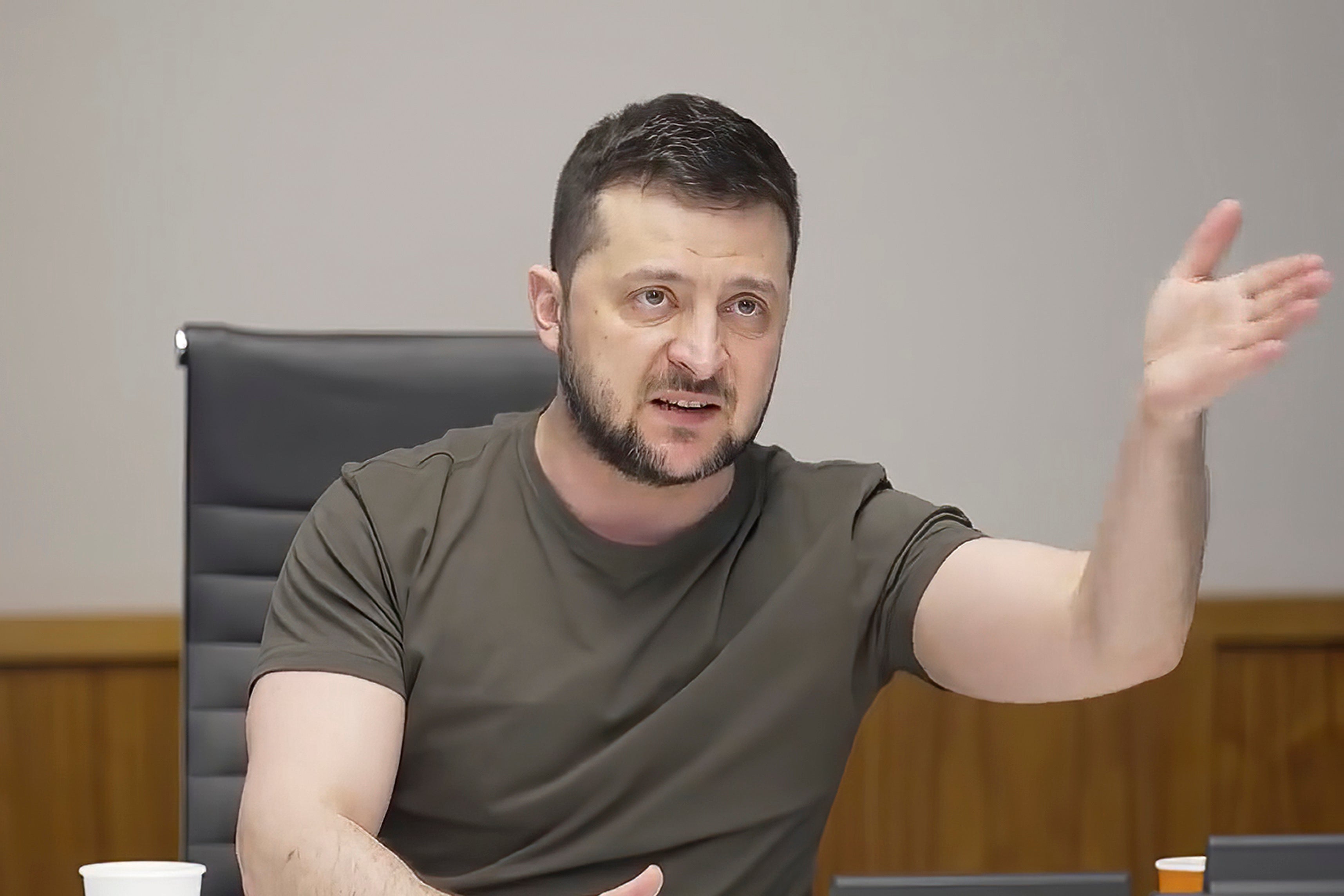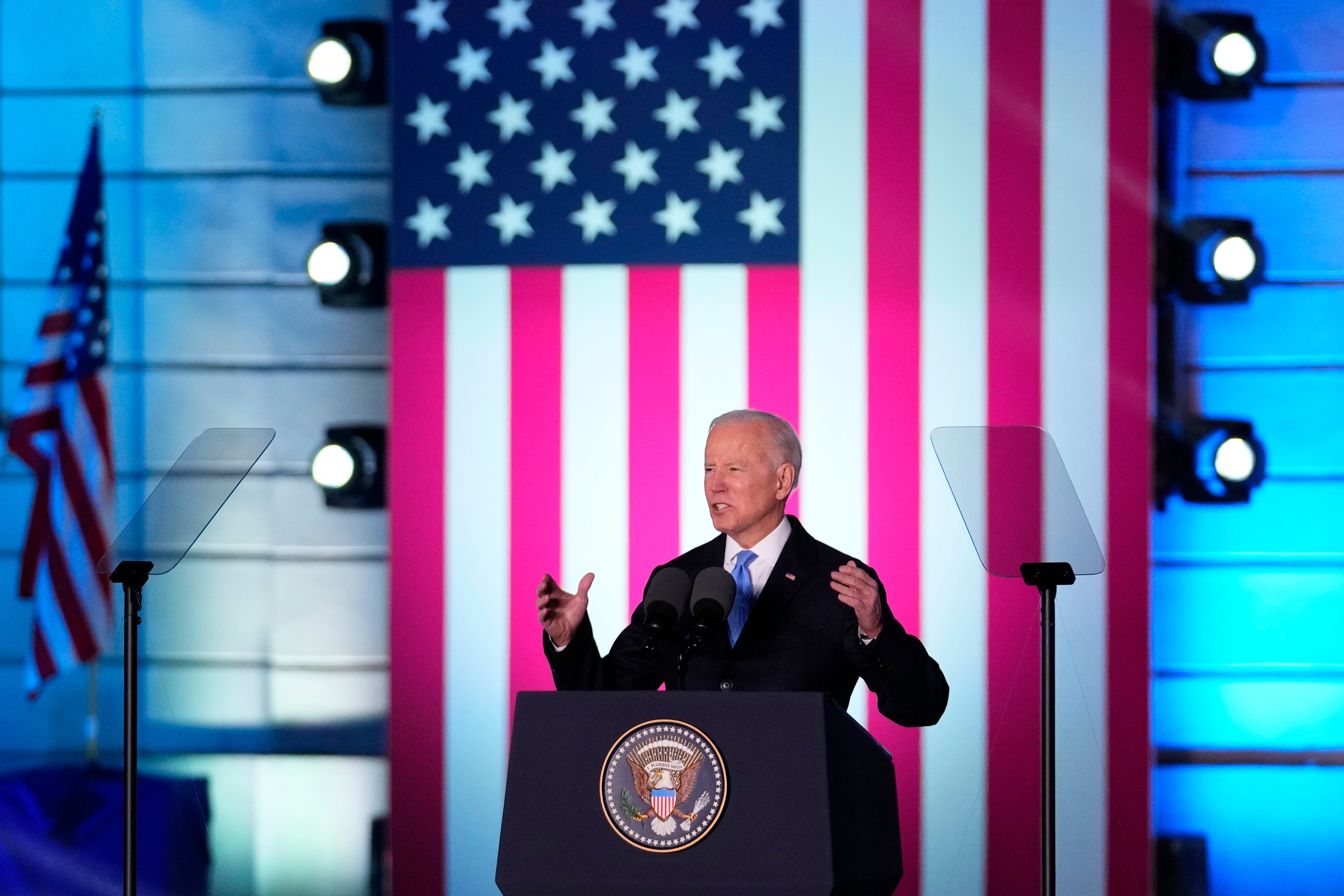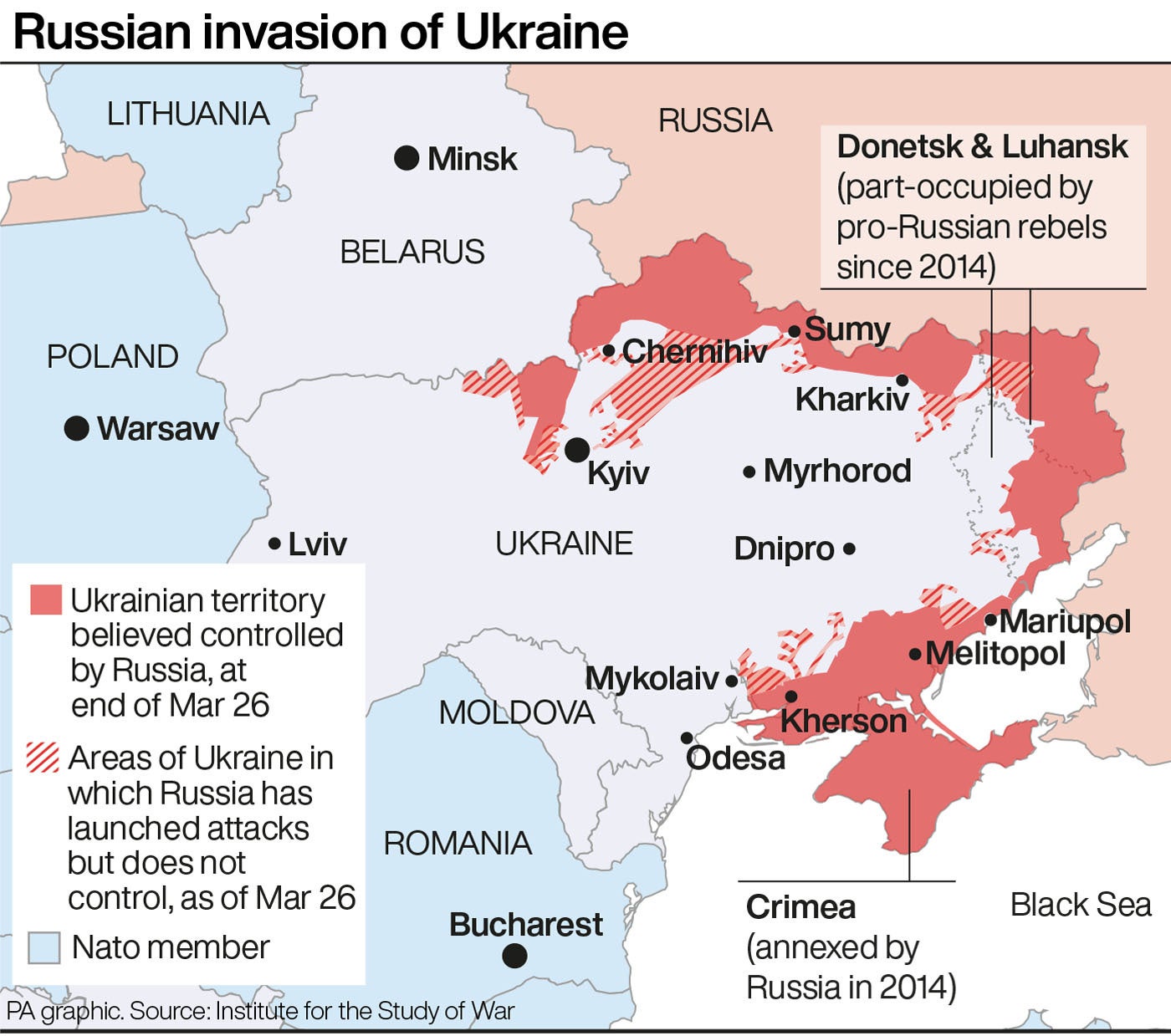Boris Johnson helping Ukraine more thanks to British public pressure, Zelensky says
Ukrainian president says Britain ‘definitely on our side’ and providing better support than other allies

Your support helps us to tell the story
From reproductive rights to climate change to Big Tech, The Independent is on the ground when the story is developing. Whether it's investigating the financials of Elon Musk's pro-Trump PAC or producing our latest documentary, 'The A Word', which shines a light on the American women fighting for reproductive rights, we know how important it is to parse out the facts from the messaging.
At such a critical moment in US history, we need reporters on the ground. Your donation allows us to keep sending journalists to speak to both sides of the story.
The Independent is trusted by Americans across the entire political spectrum. And unlike many other quality news outlets, we choose not to lock Americans out of our reporting and analysis with paywalls. We believe quality journalism should be available to everyone, paid for by those who can afford it.
Your support makes all the difference.Ukrainian president Volodymyr Zelensky has said Boris Johnson is “helping more” than other leaders in the resistance against Russia thanks to pressure from the British people.
In an interview in Kyiv where he is resisting Vladimir Putin’s invasion, Mr Zelensky said France was being more hesitant in sending weapons “because they are afraid of Russia”.
He told the Economist magazine that Germany “are making a mistake today” as it tries to take a balanced approach due to their deeper economic ties with Moscow.
The president said “Britain is definitely on our side” and is “not performing a balancing act”, but he declined to say whether the UK wants to end the war quickly at any cost.
Told the prime minister has been keener than France’s President Emmanuel Macron in sending weapons, Mr Zelensky responded: “Yes. To be honest, Johnson is a leader who is helping more.
“The leaders of countries react according to how their constituents act. In this case, Johnson is an example.”
Mr Johnson has forged a close relationship with the Ukrainian leader, speaking to him regularly by phone.
The prime minister said sending the tanks and fighter jets Mr Zelensky pleaded for as he addressed a summit of Nato leaders last week would be very difficult “logistically” but did not rule it out.
But Mr Macron warned providing armoured vehicles and fighter jets could drag Nato into a direct conflict with Russia by crossing a “red line”.
Mr Zelensky put foreign nations into categories, ranging from those who want the conflict to end quickly by any means so they can keep access to Russian markets to those supporting the Ukrainian people who “want the war to end quickly at any cost”.
“Britain is definitely on our side. It is not performing a balancing act. Britain sees no alternative for the way out of the situation,” he said.
“Britain wants Ukraine to win and Russia to lose, but I’m not ready to say whether Britain wants the war to drag on or not.”
Meanwhile, the Government distanced the UK from Joe Biden’s apparent call for regime change in Moscow when he said in an impassioned speech that Mr Putin “cannot remain in power”.
Education secretary Nadhim Zahawi said whether to overthrow Mr Putin for his invasion of Ukraine is “up to the Russian people” after the US President’s apparently unscripted call caused the White House to scramble to row back on the remark.
In a highly charged speech in Warsaw, Mr Biden appealed to Russian people directly with comparisons between the invasion of Ukraine and the horrors of the Second World War.
“For God’s sake this man cannot remain in power,” he said at the close of his speech about the Russian president he earlier described as a “butcher”.
But a White House official swiftly tried to clarify and argued that the US President’s point was that the Russian leader “cannot be allowed to exercise power over his neighbours or the region”.
US secretary of state Antony Blinken insisted “we do not have a strategy of regime change” as the Kremlin said it is “not up to the Americans to decide who will remain in power in Russia”.

French President Emanuel Macron said he “wouldn’t use those terms” voiced by Mr Biden and suggested they could make it harder to resolve the conflict, adding: “We want to stop the war that Russia launched in Ukraine, without waging war and without escalation.”
Interviewed on Sunday, Mr Zahawi said it is “for the Russian people to decide how they are governed” but suggested they “would certainly do well” to have someone who “is democratic and understands their wishes”.
“That’s up to the Russian people and it is only the Russian people that can make that decision, I suspect most of them are pretty fed up with Putin and his cronies and the illegal war,” he told the BBC’s Sunday Morning show.
But he declined to criticise Mr Biden, unlike Tobias Ellwood, the Conservative MP who chairs the Commons Defence Committee, who said Mr Putin will now “spin this, dig in and fight harder”.

Ukraine’s military intelligence chief Kyrylo Budanov warned that the Russian president wants to split the country in two under a “Korean scenario”, referencing the split between North and South Korea.
His comments came after Moscow indicated it could scale back its offensive to focus on what it claimed was the “main goal, liberation of Donbas”, the region bordering Russia in the east of Ukraine.
Peace talks between Ukraine and Russia are expected to begin in Turkey in the coming days.
Mr Zelensky has previously warned he would not give up territory in peace talks as he noted that his troops have delivered “powerful blows” to invading forces.